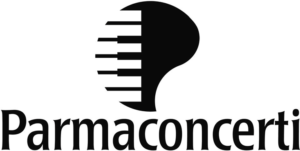Alcoholics Anonymous Effectiveness: Faith Meets Science PMC
Prior efforts to summarize the findings on AA effectiveness have included literature reviews [6, 7] and meta analyses [8–10]. The most recent meta analysis [10] concluded that attending AA led to worse outcomes than no treatment at all. A review summarizing the https://ecosoberhouse.com/article/what-is-alcoholics-anonymous/ state of the literature 7 years later [7] argued that there was a consistent, rigorous body of evidence supporting AA effectiveness. Again, there seems to be something for everybody, and the literature really does seem to be widely subject to interpretation.
Sometimes, Patterson notes, you may meet someone at a 12-step or SMART meeting who is simply attending these meetings and not getting professional treatment. Long considered a key component of recovery, 12-step programs https://ecosoberhouse.com/ are as popular as ever. If you’re ready to get help with alcohol addiction, visit the AA website to find a support group near you. There are also many secular programs that may help you achieve or maintain recovery.
Kaiser Permanente Insurance for Alcohol Rehab
Several studies offer empirical support for these mechanisms. These mechanisms (and theories) are inter-related. For example, AA friends represent a particularly effective source of social support, because they provide expertise in preventing relapse.
Reach out to us today by filling out the contact form below with your name, contact information, and a brief message about your recovery journey. If your story is chosen, a member of our team will reach out to you. History and current activities; sharing from groups, service committees, and individual A.A. You can just sit and listen and learn more about recovery, or you can share about your situation. The rich history of the early days of the formation of the Alcoholics Anonymous movement has been chronicled by archivist Mitchell K. This pamphlet describes who A.A.s are and what we have learned about alcoholism.
How Many People Die From Alcohol?
We do not impose our experience with problem drinking on others, but we do share it when we are asked to do so. We know our own sobriety depends on connecting with other alcoholics. Alcoholics Anonymous is a fellowship of people who come together to solve their drinking problem. There are no age or education requirements to participate. Membership is open to anyone who wants to do something about their drinking problem. Some people may find the 12 steps too rigid or spiritual.
- Some people also rely on an AA sponsor – a person who has overcome alcoholism for a significant period of time and understands the compulsion to drink so that you can trust him to listen and help you when you feel like drinking.
- Many areas have lifted restrictions on in-person gatherings, but virtual meetings are still a great option for those who don’t feel comfortable with in-person groups.
- There are no requirements for age Alcoholics Anonymous and anybody who wants to speak about their struggle with alcoholism or their urges to drink is welcome to attend meetings.
- In Marlon’s first year of recovery, he left his job, got a divorce, and moved.
Information for people who may have a drinking problem. Also useful for those in contact with such people. This pamphlet answers many of the common questions people have about alcoholism and A.A. It also contains stories written by the co-founders and stories from a wide range of members who have found recovery in A.A.
Footer Center Menu
Alcoholics Anonymous also has around 123,000 A.A. Meeting locations across the 180 countries it’s present in. These numbers make Alcoholics Anonymous one of the most popular and well-known addiction groups and one of the best treatment methods for alcoholism. If you are interested in the support provided by the 12-steps of AA recovery, you can find an AA meeting near you by going to their website and searching for your town or state. Researchers are also learning more about how the AA approach benefits those suffering from alcohol addiction.
- The objective was not to provide still another exhaustive literature review on AA effectiveness, but instead to present representative studies of AA effectiveness according to the criterion for establishing causation.
- Alcoholics Anonymous is usually listed in the white pages of most local telephone books.
If you like the idea of a structured group meeting but find that 12-step groups don’t feel like a great fit, SMART Recovery may be a great alternative. Finally, though AA and NA are meant to help people through discussions and readings, Patterson says meetings can become triggers for some people. Addiction is complex, so it makes sense that there wouldn’t be a one-size-fits-all approach to recovery. Not everyone’s a fan, though, and AA is far from being the only option for finding peer support.
The app is available on all operating systems and is designed to help people find Alcoholics Anonymous near them. That said, there are also other apps available that can be used as a companion to A.A. For example, the AA Big Book is an app that has the entire book of how A.A.

Most 12-step programs (and AA, specifically) have defined principles to follow. While most members accept and appreciate these aspects, it is important to be aware of them when considering membership. They found that such programs had outcomes similar to other treatments, but were “dramatically better when you’re talking about remission, sustained remission, and complete abstinence over many years,” says Kelly. In short, AA often outperforms other types of therapies or interventions, such as cognitive behavioral therapy. Clearly, faith-based programs such as Alcoholics Anonymous are not for everyone. Although millions of people claim to have found lasting recovery in AA, the spiritual aspect of the program can be a stumbling block for some who wish to stop drinking.
What Is Alcoholics Anonymous, and How Effective Is It?
The second study, Project MATCH (discussed above; see criterion 4), randomized subjects to 12-step facilitation treatment (TSF), cognitive behavioral therapy (CBT), or motivational enhancement (MET). In the aftercare arm, there were no significant differences between the three treatments, with over two-fifths abstinent at the 1-year follow-up (results not shown). In the Project MATCH outpatient arm, rates of alcohol abstinence were significantly higher for those treated in TSF at 1 year [2, Table 4] and 3 years [3] (Figure 4b). As noted above (criterion 4), AA participation among Project MATCH clients predicted subsequent abstinence, regardless of study arm or condition. A fifth experiment randomized convicted drunk drivers to AA, to outpatient treatment, or to a no treatment condition; the study did not report drinking outcomes, but found no differences in recidivism for drunk driving [26] (result not shown).
My Brother’s Keeper: Overcoming addiction – Spectrum News
My Brother’s Keeper: Overcoming addiction.
Posted: Wed, 29 Nov 2023 11:00:00 GMT [source]


